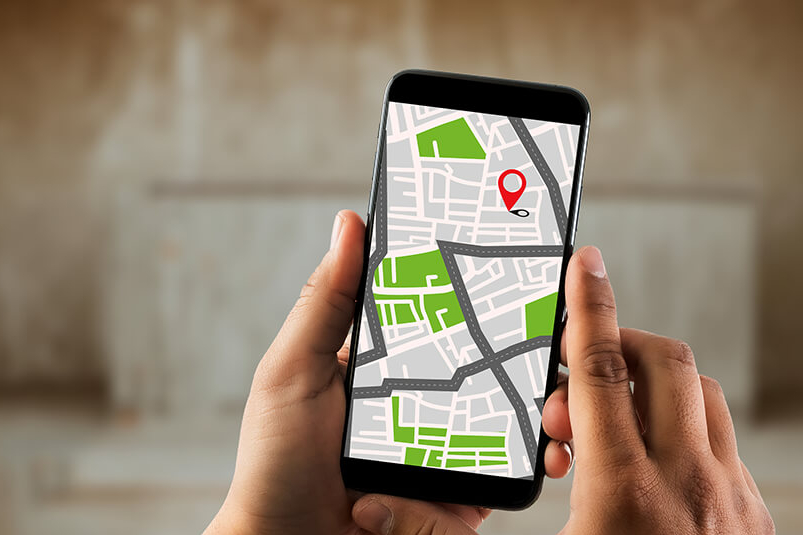In today’s digital age, cell phones have become an integral part of our lives. They serve as a means of communication, access to information, and even a tool for tracking our whereabouts. However, when it comes to divorce cases, the use of cell phone tracking can become a contentious issue. In this article, we will explore the legal and ethical implications of cell phone tracking in divorce and provide insights on how to protect your rights and privacy in such situations.
The Rise of Cell Phone Tracking in Divorce
With the widespread availability of GPS trackers and spyware apps, spouses going through a divorce are increasingly turning to electronic surveillance to gather evidence or gain an advantage in their cases. This trend has raised concerns among legal experts, as the use of these tracking methods can have significant ramifications on privacy and personal safety.
Legal Implications of Cell Phone Tracking
Cell phone tracking in divorce cases implicates both state and federal laws. While the specific regulations vary from jurisdiction to jurisdiction, several common legal considerations come into play. It is crucial to understand these legal implications to ensure that you stay within the bounds of the law and protect your rights.
Invasion of Privacy Laws
One of the primary concerns with cell phone tracking is the invasion of privacy. In many states, including Michigan, Maryland, and Nebraska, laws exist to protect individuals from unauthorized electronic surveillance. These laws prohibit spying on spouses without their consent and may impose civil and criminal penalties for violations.
Wiretapping and Eavesdropping Laws
Wiretapping and eavesdropping laws also come into play when it comes to cell phone tracking. These laws regulate the interception of electronic communications, such as phone calls, text messages, and emails. In most jurisdictions, it is illegal to intercept or access someone else’s electronic communications without their consent or a valid legal justification.
Consent and Ownership
Another crucial factor to consider is the issue of consent and ownership. In several states, including Tennessee, the installation of tracking devices on vehicles or the use of spyware on cell phones without the owner’s consent is illegal. It is essential to have proper authorization and ownership rights before engaging in any form of electronic surveillance.
Protecting Your Rights and Privacy
Given the legal complexities surrounding cell phone tracking in divorce, it is crucial to take steps to protect your rights and privacy. Here are some strategies to consider:
Consult with an Attorney
Before engaging in any form of cell phone tracking, it is advisable to consult with an experienced divorce attorney who specializes in family and criminal law. They can provide guidance on the legal implications, help you navigate the complexities of the legal system, and ensure that you remain within the boundaries of the law.
Know the Laws in Your Jurisdiction
Research and familiarize yourself with the specific laws regarding electronic surveillance in your jurisdiction. Each state may have different regulations and requirements when it comes to cell phone tracking, so it is essential to understand the legal landscape to avoid any legal issues.
Obtain Proper Authorization
If you believe that cell phone tracking is necessary in your divorce case, make sure to obtain proper authorization. In cases where shared ownership or consent is required, ensure that you have the necessary permissions from all parties involved. Failure to obtain proper authorization can lead to legal consequences.
Seek Professional Assistance
If you suspect that your spouse is engaging in unlawful cell phone tracking or electronic surveillance, consider seeking the assistance of a professional investigator. These experts have the knowledge and experience to gather evidence legally and ethically, ensuring that your rights are protected throughout the process.
Secure Your Devices and Accounts
To protect against unauthorized access to your cell phone and electronic devices, it is crucial to implement strong security measures. Use complex passwords, enable two-factor authentication, and regularly update your security settings to prevent unauthorized access to your personal information.
Change Passwords and Security Codes
In situations where you suspect that your phone or device has been compromised, it is advisable to change all passwords and security codes immediately. Use secure and unique passwords that are difficult for others to guess. Regularly changing passwords can help mitigate the risk of unauthorized access.
Stay Informed and Updated
Given the rapid advancements in technology and the evolving legal landscape, it is essential to stay informed and updated on the latest developments in cell phone tracking laws. Regularly consult with your attorney to ensure that you are aware of any changes that may impact your case.
Cell phone tracking in divorce cases raises complex legal and ethical considerations. While it can be tempting to gather evidence through electronic surveillance, it is crucial to understand the laws and protect your rights and privacy throughout the process. By consulting with an attorney, obtaining proper authorization, and staying informed, you can navigate the challenges of cell phone tracking while ensuring that your actions remain within the bounds of the law. Remember, it is always better to rely on legal and ethical means to gather evidence and protect your interests during a divorce.
Contact (954-451-0050) Akilah Harris, PLLC for a Consultation!
—
![]()
 Are you going through a divorce or trying to retain custody of your child? Do you need help with Estate Planning? Maybe you need help with something else that involves your family? At Akilah Harris PLLC., we understand that family law cases are uniquely stressful and often take a heavy emotional toll on families. Our family law offices in Pembroke Pines and Fort Lauderdale Flordia offer compassionate and thorough legal counsel to our clients. Consult with us when you need to protect your finances, assets, and time with your child. In these highly personal disputes, you need to rely on an experienced Broward County Attorney who knows how to defend your rights.
Are you going through a divorce or trying to retain custody of your child? Do you need help with Estate Planning? Maybe you need help with something else that involves your family? At Akilah Harris PLLC., we understand that family law cases are uniquely stressful and often take a heavy emotional toll on families. Our family law offices in Pembroke Pines and Fort Lauderdale Flordia offer compassionate and thorough legal counsel to our clients. Consult with us when you need to protect your finances, assets, and time with your child. In these highly personal disputes, you need to rely on an experienced Broward County Attorney who knows how to defend your rights.
